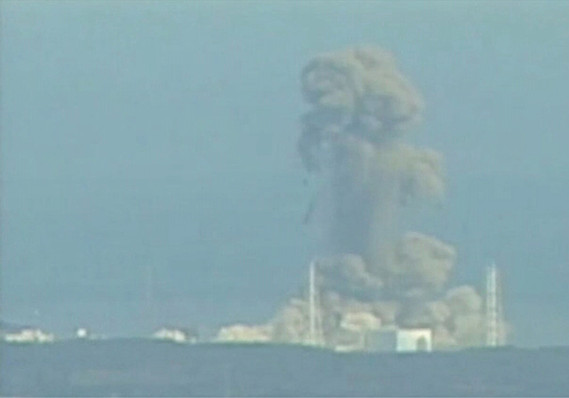Mycle Schneider, describing the Worldwatch Report he wrote on nuclear power last year (Press Release / Report) said:
“The industry was arguably on life support before Fukushima. When the history of this industry is written, Fukushima is likely to introduce its final chapter.”
Amory Lovins, of the Rocky Mountain Institute, in the foreword to the report, wrote,
“An accident can swiftly transform a mult-billion dollar generating asset into a larger cleanup liability. The Fukushima accident has just vaporized the balance sheet of the world’s #4 power company, TEPCO. A 2007 earthquake had cost the company perhaps $20 billion; this one could cost $100-plus billion. TEPCO is now broke and is becoming, in whaterver form, a ward of the state. And with such an unforgiving technology, accidents anywhere are accidents everywhere.”
Schneider’s report looks at the big picture. It is not directly focused on the impact that Fukushima has had, is having and will continue to have on the people of Japan.
As I wrote (here),
- The nuclear industry in the USA is just like the nuclear industry in Japan – and that’s bad, really bad.
- In a market economy there can be to too much pressure to increase shareholder value to invest enough on safety. In a command economy, such as existed in the Soviet Union and exists in China, North Korea, and perhaps, Iran, it is illegal to criticize the government and therefore likely that necessary investments in safety will not be made.
I spoke with people from Fukushima Prefecture at the “No More Fukushimas” event in Lincroft, NJ, on March 5, 2011, and expect to be at the event in Zuccotti Park at 9:00 AM on Thursday, March 8, 2012. Because radioactive particles are not easily identified – you need a Geiger Counter – the people I spoke with and many in Japan are worried that the vegetables they eat come from the Fukushima area. Even if the vegetables are labled from prefectures in the north, south and west, they are worried that the vegetables are actually from Fukushima but packaged in northern, southern or western prefectures. They have lost confidence in their government. (My question, as an American, is “How different is our government from the Japanese government, when it comes to managing the safety of nuclear power plants?”)
The Japanese also acknowledge that it could have been worse, much worse. In the days after the Earthquake / Tsunami / Triple Meltdown the winds blew from west to east – and blew much of the air borne radioactive particles into the skies above the Pacific, toward Hawaii, the United States, Canada, Chile. Japan was saved from what could have been a worse fate. The good news, I suppose, is that some of those particles will fall into the “Great Pacific Garbage Patch” and trigger mutations which will sooner or later develop into metabolic pathways by which bacteria, algae, or plankton will be able to eat the currently non-biodegradable plastics.
While some will say: there were meltdowns in Three out of the Six power plants at Fukushima Dai’ichi, and those melt-downs were caused by the failure of the cooling system, all we need to do is engineer better cooling systems. However, they are missing the point. We can build pretty good ones, but we can’t build a perfect nuclear power plant.
And building them well means they are very expensive. As David Lochbaum, of the Union of Concerned Scientists, told me last year,
“The NRC permits ALL nuclear plants to emit tritium. It is simply too expensive to capture ALL the tritium.”
Here’s the paradox: My light bulbs, computers, television and other appliances can’t distinguish between electricity from a coal plant, a nuclear plant, a wind turbine, or a solar module. In a competitive environment the owners of nuclear power plants need to manage costs. In a non-competitive environment, such as Iran, China, North Korea, or the Soviet Union, they don’t worry about costs, but they also don’t worry about what others (dissidents) say. So while we can build them safer, and we can maintain them at a higher level of safety, we don’t because it’s too expensive. People in command economies, who don’t concern themselves with money, don’t build them safely because they don’t worry about safety.
